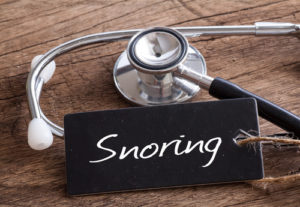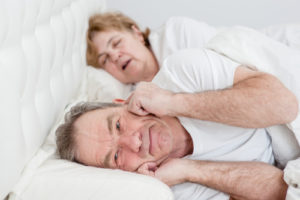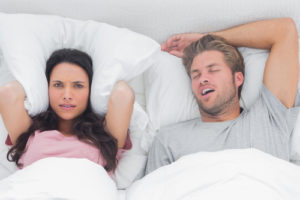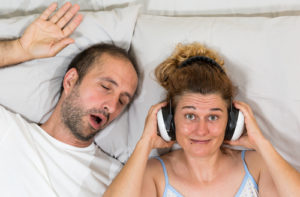What is Infantile Apnea?

Infantile Apnea
The term “apnea” generally denotes a blockage in spontaneous breathing. Simply put, people with this stop breathing and wake up struggling for breath. You would know of this happening in a huge number of adults in the country, but it also occurs in infants. Infantile apnea occurs in children who are under on year in age. It is often the result of a neurological issue damaging the respiratory rhythm. The symptoms include breathing stoppage while the child is asleep, skin discoloration, and even a slowed heartbeat. This could even prove fatal.
Symptoms
Infantile apnea has temporary cessation of normal breathing as its main symptom. Other than that, the child may develop cyanosis (bluish discoloration of the lips, mouth, and skin), or bradycardia (unusually slow heartbeat). The aforesaid cessation can last up to 15 seconds in each episode.
Sleep apnea in infants can manifest in many forms. To better understand respiration, one must understand that respiration owes its regulation to a specific bunch of nerves in the brain. These are what control cadence of breathing relative to fluctuating blood oxygen levels. Children with central apnea have a low respiratory drive, and when apnea hits, they make no chest movements, nor do they have air passing through the nose or mouth. Here, the brain fails to adequately signal the lungs and diaphragm to move as they should. Breathing stops off, and only resumes when the oxygen-deprived brain is able to relay the proper messages.
Obstructive Sleep Apnea is different, in that it results from the airway getting blocked and complicating breathing. The blockage in this type of apnea can be from a range of reasons, such as soft tissue in the throat collapsing. The child’s chest moves, but air does not flow to the lungs. When the infant finally does resume breathing, he or she typically makes a snorting noise and wakes up. Here, breathing does not stop per se; the infant simply struggles to draw breath spontaneously.
Causes
Infantile apnea has no exact known causes. It can happen as the result of a mix of developmental and environmental factors. In some very rare cases, it can be hereditary, which means more than one family member runs the risk of having apnea episodes.
Infantile apnea can happen from many causes. Prematurely born babies can experience apnea episodes. Other causes, such as Sepsis, Hypoglycemia, Hyaline Membrane Disease, Arnold Chiari Syndrome, Meningitis, enlarged adenoids, Down’s Syndrome, gastro esophageal reflux, anemia, Zellwenger Syndrome, craniofacial abnormalities, Alpers Syndrome, Holoprosencephaly, chromosomal abnormalities, Schinzel-Giedion Syndrome, and intracranial hemorrhage, need to be ruled out as well. Some of these are rare diseases, requiring skilled specialists to treat.
Related Disorders
Infantile apnea is seen to affect males and females equally commonly, and occurs in children under a year of age. Infants born prematurely have a tendency to suffer from what is known as apnea of prematurity.
The symptoms of some disorders are the same as those of infantile apnea, which is accurate diagnosis requires comparisons. SIDS or Sudden Infant Death Syndrome, where a young child or infant does unexpectedly, involves the child not breathing at a time when he or she is supposed to be asleep. However, SIDS and apnea have no established common base.
Standard Therapies

Standard Therapies
It is possible to hold back the more severe complications, which could arise from infantile apnea, by setting up cardiac monitors and home apnea monitors to alert caregivers or parents when something goes awry. It goes without saying that these devices should only be bought following the advisement of a physician, and that safety and effectiveness should be given top priority. Sometimes, drugs may need to be administered in order to stimulate the child’s flailing respiratory system. Parents would do well to learn basic lifesaving techniques like CPR. The infant must be kept from overheating, so as to minimize chances of apnea. He or she should lie supine during sleep, assuming there is no Obstructive Sleep Apnea or gastro esophageal reflux.
If the symptoms worsen, medication intake may be the only way out, with or without oxygen supplied to the child. Children with Obstructive Sleep Apnea can benefit from the use of a CPAP machine, which helps regulate their breathing. This comprises a mask placed on the nose and connected to a machine, which forces out low-pressure air towards the child’s lungs. All said, it is a low safer than wearing an apnea chin strap in one’s sleep.
Investigational Therapies
Many ongoing studies are being aimed at figuring out new ways to treat infantile apnea. New drugs such as primidone are being studied to see if they can help cure infants resistant to theophylline. Much deeper research may be needed to know exactly how safe and effective such drugs can be in this area. There is constant US government funding for such efforts, as well as support from the private industry.






